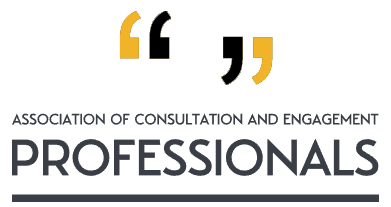
Fraser Henderson (Let's Roll)
Founder
I cut my teeth working on consultation and engagement projects at The Consultation Institute. Over a period of 13 years, I have helped hundreds of public bodies in their consultation and engagement pursuits – mainly in relation to major service change. For example, during the last decade I have delivered countless bouts of training and quality assured a number of major service change programmes in the NHS and local government – such as SEND, Libraries and Devolution deals. In 2021, I secured funding to develop a public participation data warehouse and online dispute resolution system from scratch.
I started my career in consumer electronics, working in R&D for the Consumers’ Association and Philips Research. This manifested into digital policy and being appointed to work on government innovations. Subsequently, I led the £4m International Centre of Excellence for Local eDemcoracy and won the European Political Technologies award in 2005. During this time, I implemented the UK’s first online petitions system (years before no.10) and the UK’s first online mental health clinic with BT & the City of London Digital Inclusion Team. I also founded the Pan-European eParticipation Network and worked on many EU projects including the European Parliaments’ eParticipation prearatory action, EuroPetitions and Deep-EU.
Following this, I was a dialogue and engagement expert (digital) for ScienceWise – a BIS funded programme on deliberative engagement in emerging science & tech policy. Alonside this I worked as an ICT Business partner for Balfour Beatty and established a number of digital fabrication hubs for Lincolnshire County Council.
I have worked on many international assistance projects too – mostly relating to democratic innovation for development agencies such as The World Bank and National Democratic Institute (NDI). For example, I worked in-country helping the governments of Sweden, China, Morocco, Tunisia and Ukraine implement new consultation reforms.
In 2018, I organised a free tech meet up called “StakeCamp” (developing the idea of the Unconference) with the kind support of Transport for London. This corresponded to a role representing a leading Australian SaaS stakeholder relationship management company. More recently, I held a leadership position at the University of Lincoln, helping commercialise research outputs and develop strong industrial partnerships.
My key interests are in new and emerging technologies, politics, the role of public participation in building democracy, digital government, strategic communications and the interaction between civil society and government. I am a qualified waterfall and agile project manager and hold a certificate in leadership management (ILM).

John Twitchen (Let's Go)
Founder
I have spent much of the last thirty years in engagement and consultation, working with stakeholders on complex issues, technologies and policy changes in the energy and resources sectors. Much of my experience is drawn from stakeholder engagement in the planning process, from concept to outcome, across infrastructure and service delivery.
My degree is in environmental science and early in my career it was clear I was better with words than numbers! I was fortunate enough to work on some of the country’s earliest integrated waste strategies which required a significant stakeholder engagement component, as part of a small specialist consultancy team. After a short stint working in-house as communications lead for organisations in the resources sector, I established my own specialist communications and community relations called Sauce Consultancy.
Sauce grew to employ ten people, working across dozens of planning projects, policy development processes and behavioural change campaigns, and published the seminal ‘attitudes to waste and recycling‘ report before merging with another organisation to form Copper Consultancy, which became one of the leading stakeholder engagement agencies in the country. I left Copper shortly before the launch of a landmark research report considering ‘attitudes to infrastructure‘ which I led. I was also an associate of the Consultation Institute and co-chair of its Advisory Board, and have been involved with NIPA – the National Infrastructure Planning Association – including speaking at its 2018 annual conference on the subject of ‘digitising planning‘.
Over the last few years I’ve supported a number of organisations in engaging with stakeholders from the widest variety of backgrounds and roles: active waste site neighbours, community groups and representatives, parish, district and county councillors, NGO representatives, school governors, Members of Parliament, policy think-tanks, local business owners and industry leaders. Oh, and lawyers.
Alongside championing all things environment, sustainability and net-zero, I love technology and how it can (and needs to, has, and will) make significant change happen. My report for the Chartered Institution of Wastes Management (where I am a Fellow) considered ‘the impact of technology on consumption‘ – we face an important time in the use of technology, both as a brilliant tool for engaging stakeholders but also as a potential barrier to communicating and discussing complex and nuanced issues through the sometimes divisive debates where there is no space for middle ground and mental health is being impacted. As an accompaniment to technology, face to face engagement – alongside transparency, kindness and patience – has never been more important.
I’ve recently started with Grayling as a Director working part-time in its engagement business, and I’m also putting my mantra of ‘action speaks louder than words’ into, well, action, by engaging business supply chains in creating a real solution to the problems of plastic through my company Stuff4Life.
Net-zero is a huge challenge but also an incredibly important opportunity to inform, consult, involve and truly engage our fellow citizens in the change that is required to get there. The size of the task fills me with trepidation, but I am also hopeful and optimistic that there are many, many positive outcomes from what we are about to embark upon, including a healthier and happier society. Let’s go.
